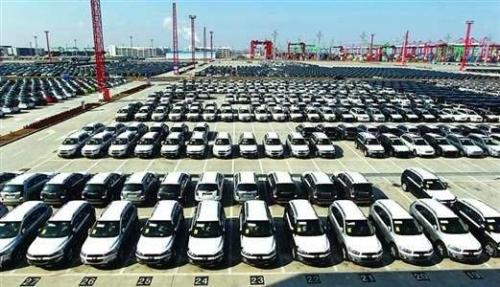China likely to adjust imported auto tariff again

Shanghai (ZXZC)- At the World Economic Forum Annual Meeting 2018, Liu He, Vice Chairman of the National Development and Reform Commission (NDRC), showed that China has reduced the import tariff on 187 products in the past 2017 to expand the country’s import business. In the future, the government will strengthen the operation of the tariff reduction and lower the auto import tariff in an arranged way.
Since China joined the WTO, the country had cut the auto import tariff for four times from 2001 to 2004, under the trend of Chinese local automakers intensifying their layouts in overseas markets. During this period, China slashed the tax on imported vehicle with engines of above 3.0L from 100% to 37.6% and of below 3.0L from 80% to 34.2%.
On July 1st, 2006, China’s ninth adjustment kept the import tariff on vehicle stabilized at 25%. Meanwhile, the tax on imported auto parts also decreased to 10%.
During Trump’s visit to Beijing in November last year, the two countries reached consensus in several aspects which conveys that China will gradually reduce tariffs on auto import. There is information saying that the auto tariff may be lowered to around 15%.
The tariff cut on imported vehicles will be a good news for those who want to buy imported vehicles. The consumers will pay less money on car-purchasing. For instance, if the tariff is reduced from 25% to 15%, people will save around RMB 40,000 to 50,000 when they purchase an imported vehicle pricing at RMB 700,000 to 800,000.
In addition, the multinational automakers who have businesses in China and the domestic imported vehicle dealers will also be benefited from it. The tariff reduction will improve the competitiveness of imported vehicles in price, thus helping increase total auto import volume in China. According to relevant statistics, the imports of vehicles surged from around 70,000 units in 2001 to over 1,078,000 units in 2016.
Some analysts think that the price reduction of imported vehicles may result in a series of price cuts on JV vehicles and self-owned brands. However, imported vehicles occupy quite small shares (around 4%) in overall auto market and JV vehicles and self-owned brands have an increasingly higher cost-performance value, thus the effect caused by tariff reduction may be relatively small.
Wu Songquan, Chief Expert of China Automotive Technology & Research Center (CATARC), stated that the tariff on imported vehicles should not be too low. If the tax is decreased to a very low level, those global automakers might shift their highlights to export business instead of focusing on production with their JVs in China.

